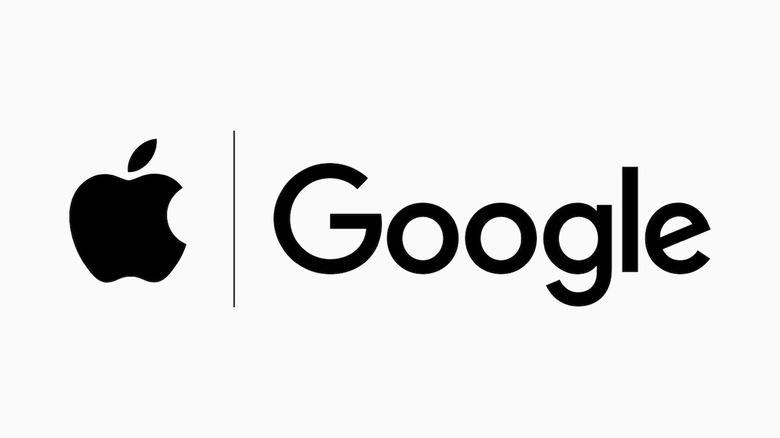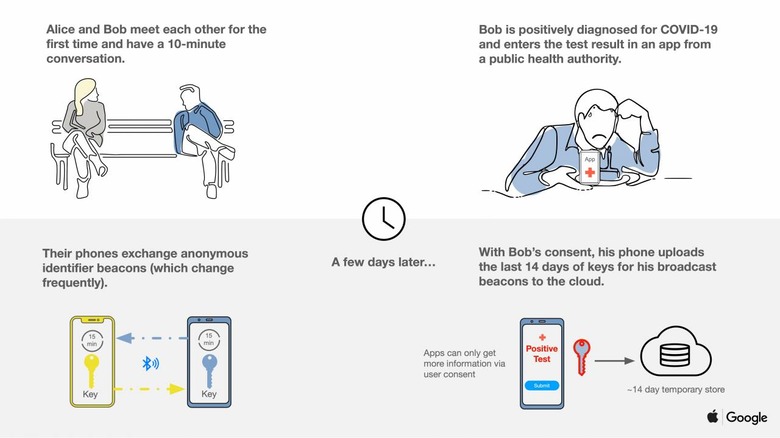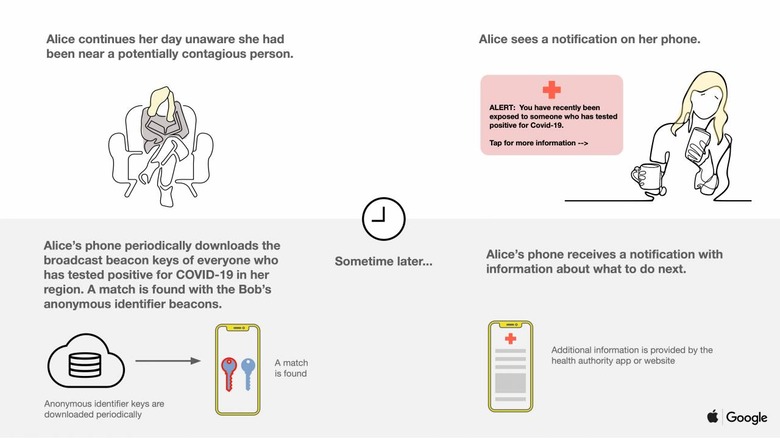Apple And Google Team Up To Use Phones For Coronavirus Contact-Tracing
Apple and Google are collaborating on a coronavirus tracking system, a joint effort which will allow iPhones and Android smartphones to be used to monitor the spread of COVID-19. The system will include tools for governments and health agencies to do contact tracing, though there'll be a big emphasis on individual privacy and security.
Pinpointing how coronavirus has spread has been one of the most challenging aspects of the ongoing pandemic. Though the virus is believed to have first been identified in China, mapping out its progression across the world has been hampered by the nature of its infection.
Those carrying coronavirus, for example, are believed to be infectious for around 48 hours before they may show any of the symptoms of the virus. More troublesome still, about a quarter of those who contract COVID-19 end up completely asymptomatic. That is, they can be infected carriers, but show no outward signs of that. Limited accessibility to testing has hampered accurate counts of just how many people may be coronavirus carriers.

One possible way to address that is a system of contact tracking, which would use peoples' smartphones to generate a record of where they've been and who they've been near. Several such projects have begun around the world, but now Google and Apple are teaming up to build OS-specific tools and APIs that will make that process easier.
First up, both Apple and Google will release special APIs that allow for interoperability between iOS and Android devices, when using apps from public health authorities. Such apps would be available through the App Store and Google Play store, respectively. It'll mean software can better compare data, regardless of the platform people are using.
Those APIs should be ready in May, the two companies say. In the months to come, though, Apple and Google plan to develop "a broader Bluetooth-based contact tracing platform by building this functionality into the underlying platforms." Described as being "more robust" than the API, it will pave the way to more people taking part by opting in at a system-level.
It'll also work with a wider ecosystem of apps and government health authorities, it's suggested.

The system will not collect personally-identifiable information, or user location data. Instead, it will build a list of people who you've been in contact with, all stored solely on the phone. Explicit user content will be required to start that process.
If someone tests positive, those people won't be identified to Google, Apple, or other users. Instead, the data will be used for contact tracking by public health authorities. When you get near someone else – whether you're using an iOS or an Android device, and whether they're using an iOS or an Android device – the two phones will exchange an anonymous identifier beacon via Bluetooth LE. These beacons will automatically change frequently.

If, later on, you're diagnosed with COVID-19 and you enter that result into an app from a public health authority, with consent the last 14 days of keys for your broadcast beacons are uploaded to the cloud. Periodically, other peoples' devices download he broadcast beacon keys of anybody in their region who has tested positive with coronavirus, and checked against their own log of contacts.
Should a match be identified, a notification pops up on the phone. That might read something like "Alert: You have recently been exposed to someone who has tested positive for COVID-19," it's suggested. It'll also come with a link to more information as to what to do next.
Importantly, privacy and data security will be a particular area of focus. "Privacy, transparency, and consent are of utmost importance in this effort," the companies point out, "and we look forward to building this functionality in consultation with interested stakeholders. We will openly publish information about our work for others to analyze."
Although the first APIs won't be ready until next month, Apple and Google are already releasing draft technical documentation for the system they have in mind. That'll include both a Bluetooth and a cryptography specification, along with a framework API.
